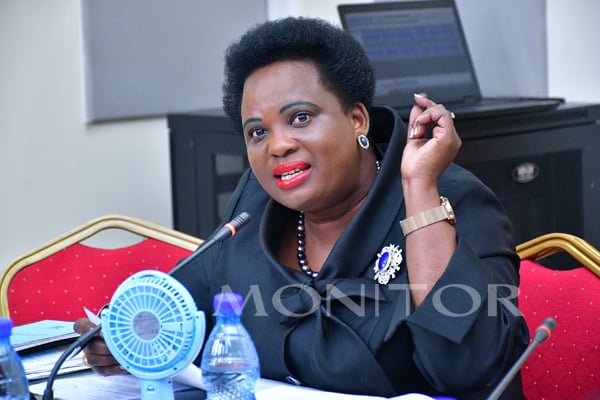Prime
Over 7,000 youths to benefit from skills toolkits

Minister of Gender, Labour and Social Development Betty Amongi.
What you need to know:
- The programme also aims at transforming groups from the informal to the formal sectors.
At least 7,102 youths from the informal sector are expected to benefit from a government vocational skilling project, which aims at supporting Ugandans with small-scale businesses across the country.
The project dubbed Jua-Kali is procured under the green job programme from the Ministry of Gender Labour and Social Development (MGLSD). The initiative started in 2018 with the aim of supporting Ugandans in the informal sector to access startup capital.
The latest beneficiaries were revealed during the eighth edition of the handover of toolkits to 165 Sacco groups from 51 districts in Kampala yesterday.
Speaking to the media during the ceremony, the Permanent Secretary of the Gender ministry, Mr David Kibenge, said the equipment was procured under the Green Job and Fair Labour Market Programme that is funded by the government of Uganda.
“One of the key result [oriented] areas of the green jobs programme is to provide businesses toolkits and equipment to informal enterprises, so that we support job [creation] and productivity growth,” he said.
He added that since 2018, they have provided business toolkits to 382 Jua-Kali groups in Seven cohorts comprising 9,703 members of which 4,845 are male (49.9 percent) and 4,858 are female (50.9 percent).
“In the eighth edition, 3,152 toolkits and equipment will be distributed to 165 groups, which represents 7,102 beneficiaries. Of these, a total of 2,876 are male while 4,226 are female.’’
Transformation
The programme also aims at transforming groups from the informal to the formal sectors.
“This intervention complements other government efforts to achieve economic empowerment by targeting the most productive sections of our population,” Mr Kibenge said.
The Gender minister Betty Amongi said the project supports Ugandans at the household level.
“Although we focus on people with existing enterprises, we are very aware that the support from the government requires more human resources from unemployed people,” she said.
Ms Amongi added that all the groups, which were supported, were screened by a team from her ministry to make sure they exist and are operational.
She added that the programme is about one of the pillars of the Gender ministry (social development) that analyses society and identifies its problems and looks at how people can be supported.
Ms Amongi also revealed that through decent work and social protection projects, labour standards will be improved.
“Through this project, we have launched the Mobile Digital Truck through Huawei Company that will be moving throughout the country to offer an opportunity to young women to access digital skills,” she said.
Requirements
Mr Kibenge said for beneficiaries to qualify, they must be citizens and organised in groups with a minimum of five members. The group must also be registered by any authority from the sub-county level to the national level.
“The authorities include those registering at county level, district level or Uganda Registration Services Bureau, and there should be existing enterprises where 80 percent is in operation, with a known location,” he said.




